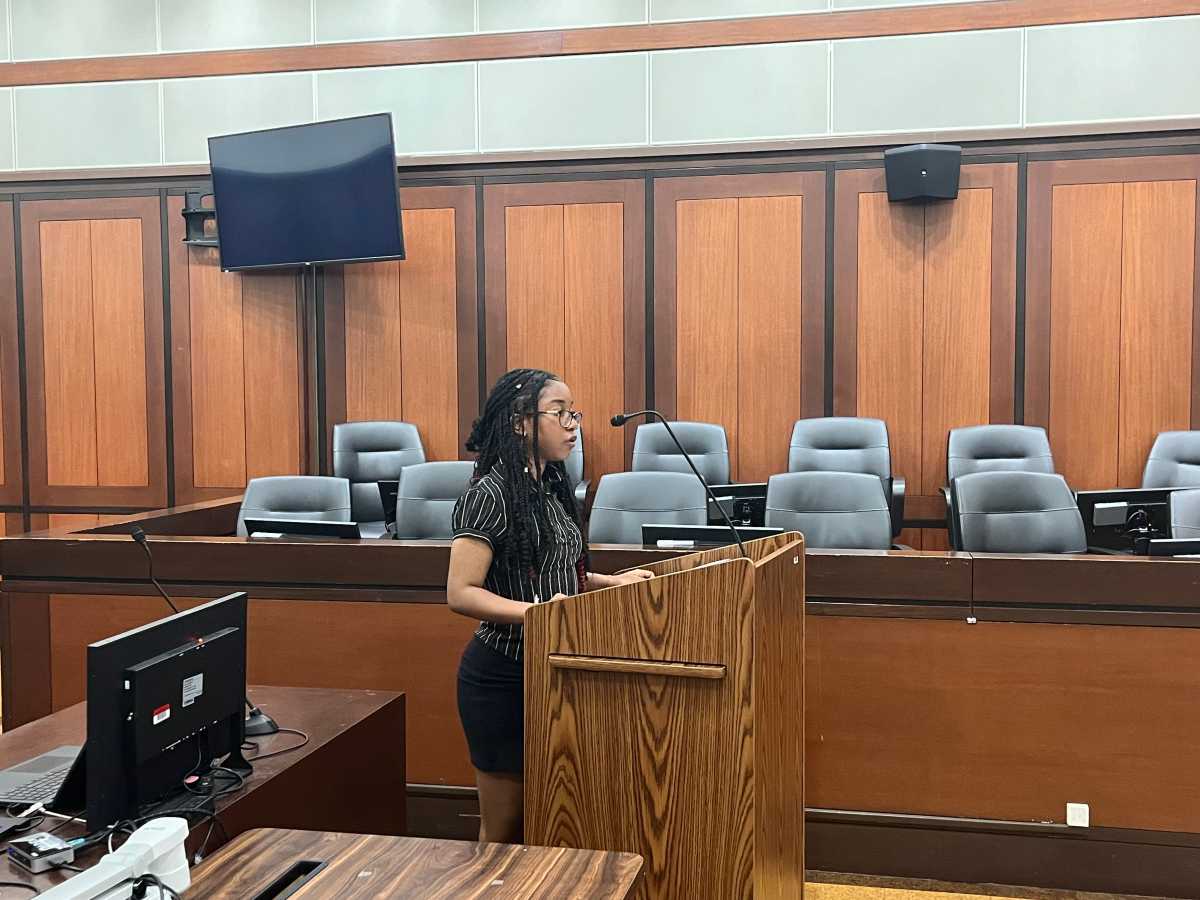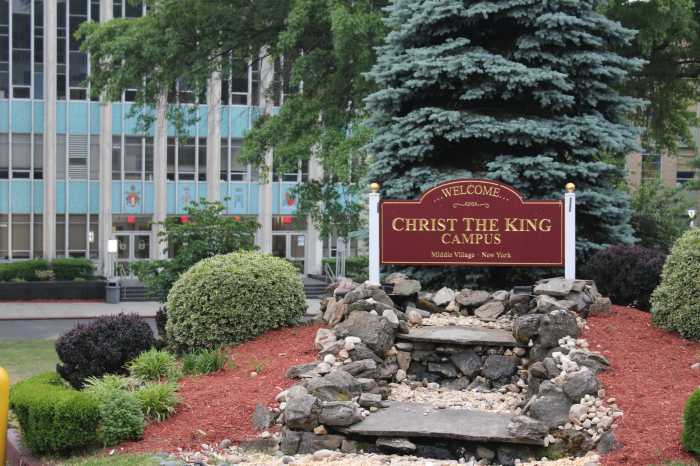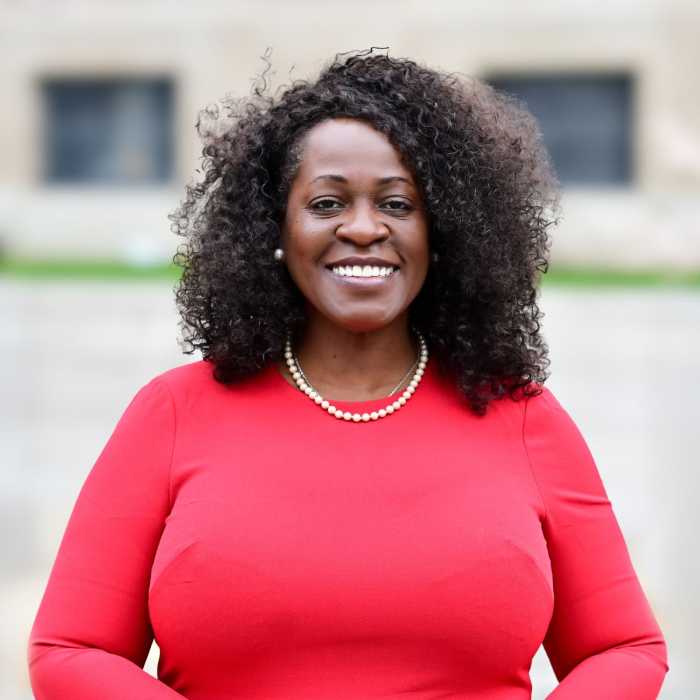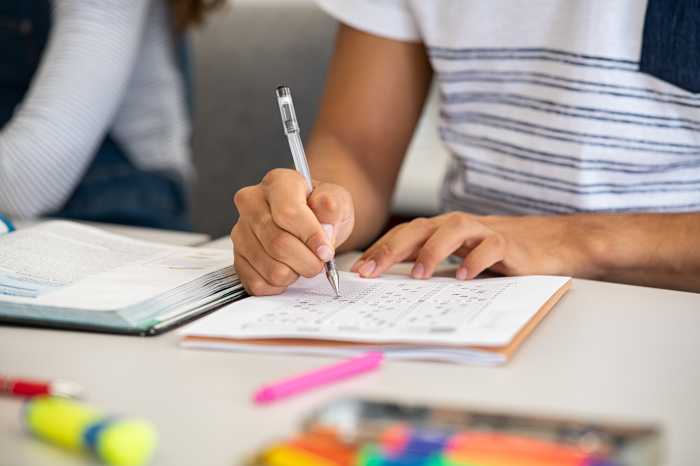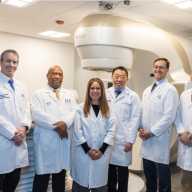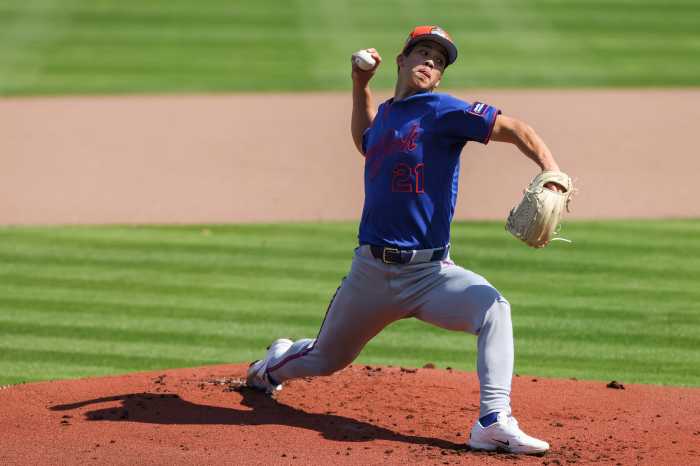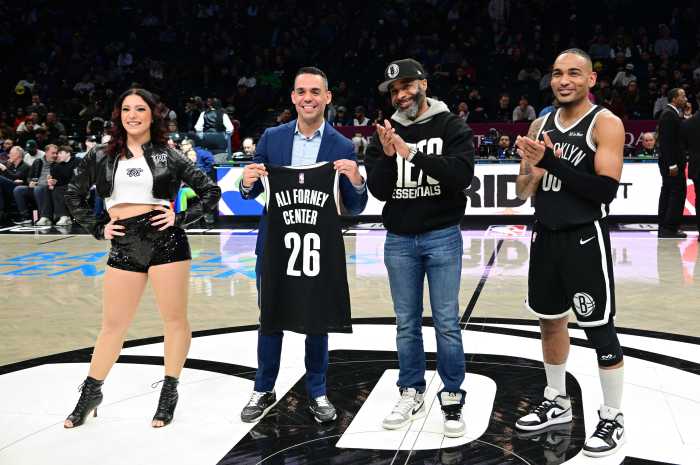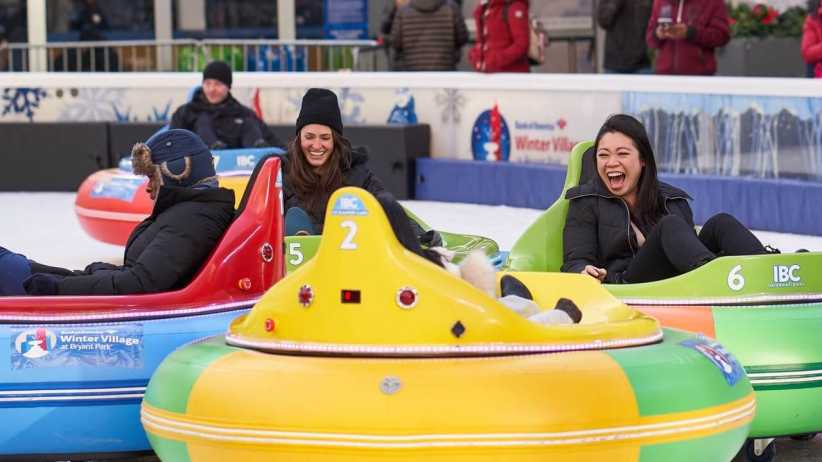A group of Queens-based students demonstrated their debate skills during a prestigious competition held at Queens Criminal Court in Kew Gardens on Friday, June 20.
Forty-five elementary, middle, and high school students participated in the inaugural Debater of the Year Competition, organized by the Young Debaters Program in collaboration with the Queens Supreme Court Civil Term Equal Justice Committee. The event took place at Queens Criminal Court, located at 125-01 Queens Blvd.
All participants were previous first-place winners in major grade-level competitions and were invited to compete for the title of Debater of the Year in their respective school-level categories.
Students squared off in different courtrooms, debating topics that had been shared in advance. Judges included Hon. Michelle A. Johnson, Administrative Judge of the Queens County Supreme Court, Criminal Term; Hon. Maxine S. Broderick of the Nassau District Court, Criminal Term; and Hon. Gary F. Miret, Acting Justice of the Queens County Supreme Court, Criminal Term.
Elementary and middle school students debated the constitutional implications of using facial recognition software in schools, while high school participants tackled the issue of subway surfing and liability.
All participants are members of the Young Debaters Program, a law-based youth development initiative founded by attorney Richard Anthony Celestin. The program teaches students the fundamentals of debate, public speaking, advocacy, and critical thinking.
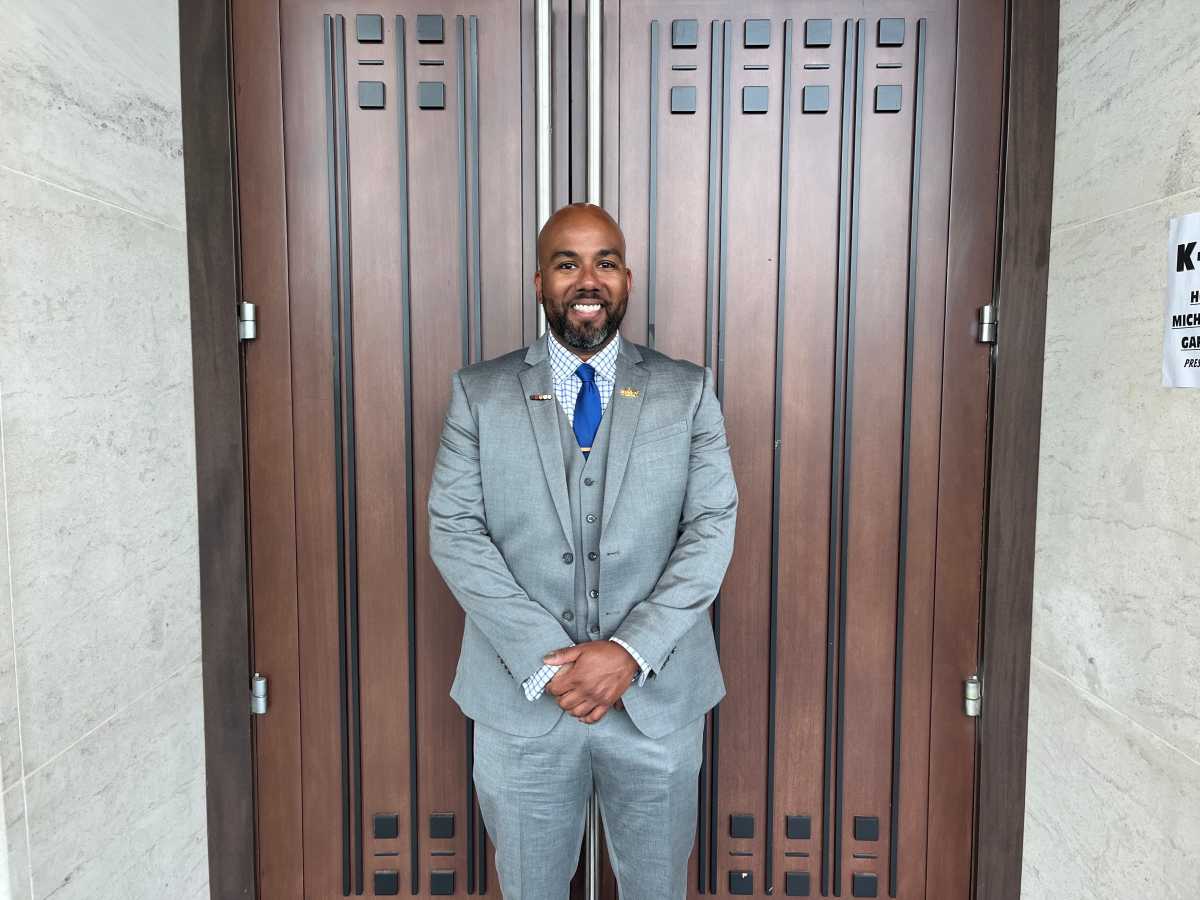
Celestin developed a 2009 curriculum focused on how to think, read, and argue like a lawyer. Teachers are then trained to teach this curriculum to students from grades 5 through high school.
Celestin’s curriculum has been implemented in 145 schools throughout the five boroughs, Long Island, and New Jersey. After students learn the foundational skills, they participate in debates at the end of the program at accredited law schools, including Hofstra University, Rutgers University, CUNY School of Law, and St. John’s University.
“It’s really an amazing program and it’s designed as a pipeline to law school for students, to introduce them to the law, to expose them to attorneys, and teach them foundational skills of debate,” he said. Celestin said he’s seen thousands of students go through his program and move on to careers within the law field.
Celestin said that in practicing law, he is continuously motivated to continue his work with students. “ One of my personal drives in terms of doing the work that I do is, I realize that when I’m present in court, there is a very low representation of people of color who are attorneys,” he said. “So I tend to target schools that are primarily in black and brown communities, and a lot of them get to meet attorneys that look like them from communities that they come from. In addition to that, I also take my experience into my practice, and I go into schools and talk to them about consequential thinking, and their actions, as well as thinking about their future and their different careers in the law [field],” he said.
Celestin was born and raised in Jamaica, Queens, and works with Queens students based primarily in districts 27, 28, and 29 in Southeast Queens.
Jennifer Saintpreux, Co-Chair of the Queens Supreme Court Civil Term Equal Justice Committee, said the collaboration between the Young Debaters program and the Supreme Court is an impactful way to show youngsters that the courthouse can be an accessible, encouraging space.
“It exposes people to different careers in the courthouse sooner. It’s not just lawyers and judges; you can be a court officer, a court reporter, a court clerk or an interpreter, there’s just so many different things you can do inside of a courtroom, and its better to allow young people to see what that looks like now, and show that the court house is accessible. It’s not only just a place you have to go to where you’re in trouble or have a problem,” Saintpreux said.
A few of the debaters shared their pre- and post-debate feelings.
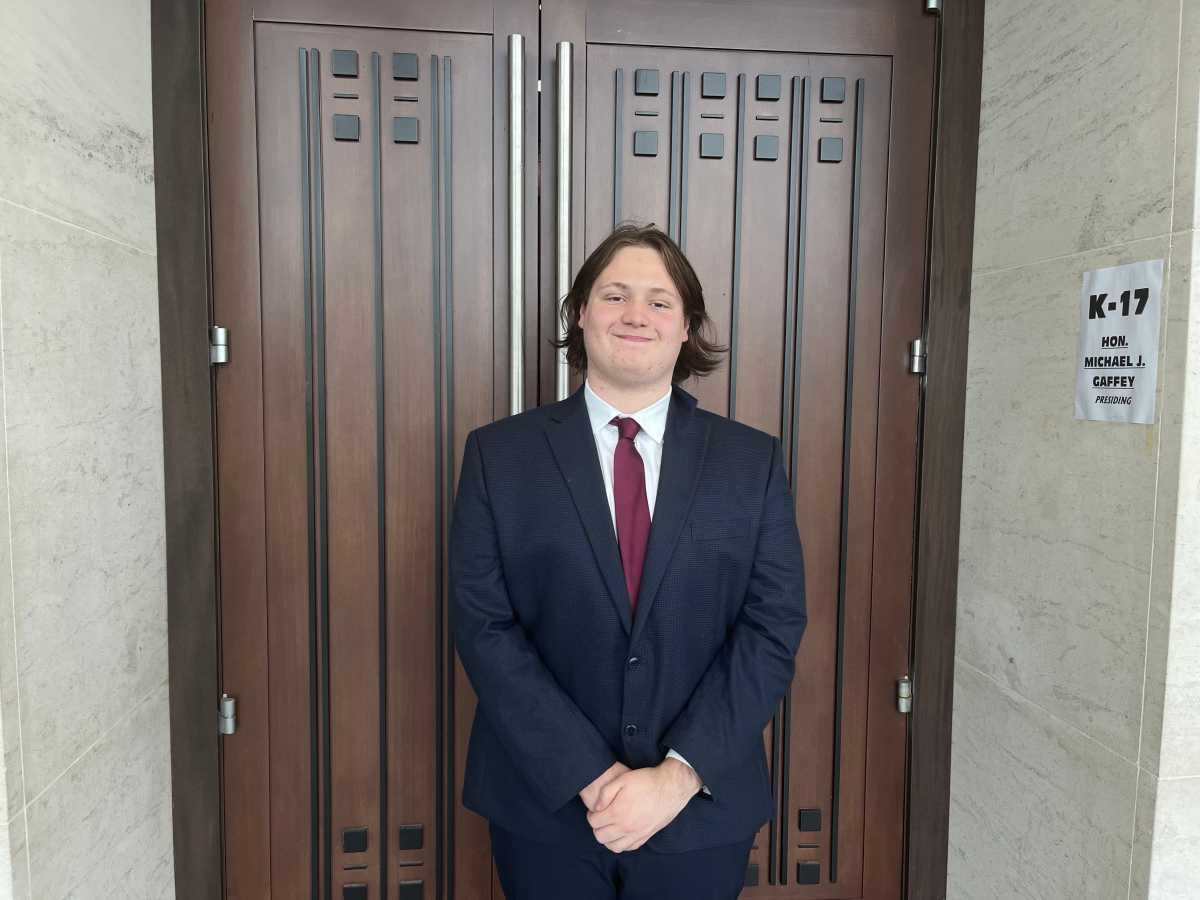
Sawyer Pratt, 16, is a sophomore at Forest Hills High School and a second-year member of the Young Debaters Program. Pratt presented as the lawyer for the plaintiff during his debate and had prepared by studying previous court cases. “I felt really good, I practiced a lot this past month,” he said. Pratt said he’s still deciding if he will practice criminal, constitutional, or immigration law in the future. “I want to go to either Binghamton or Syracuse University and after that go to law school and pass the Bar,” he said.
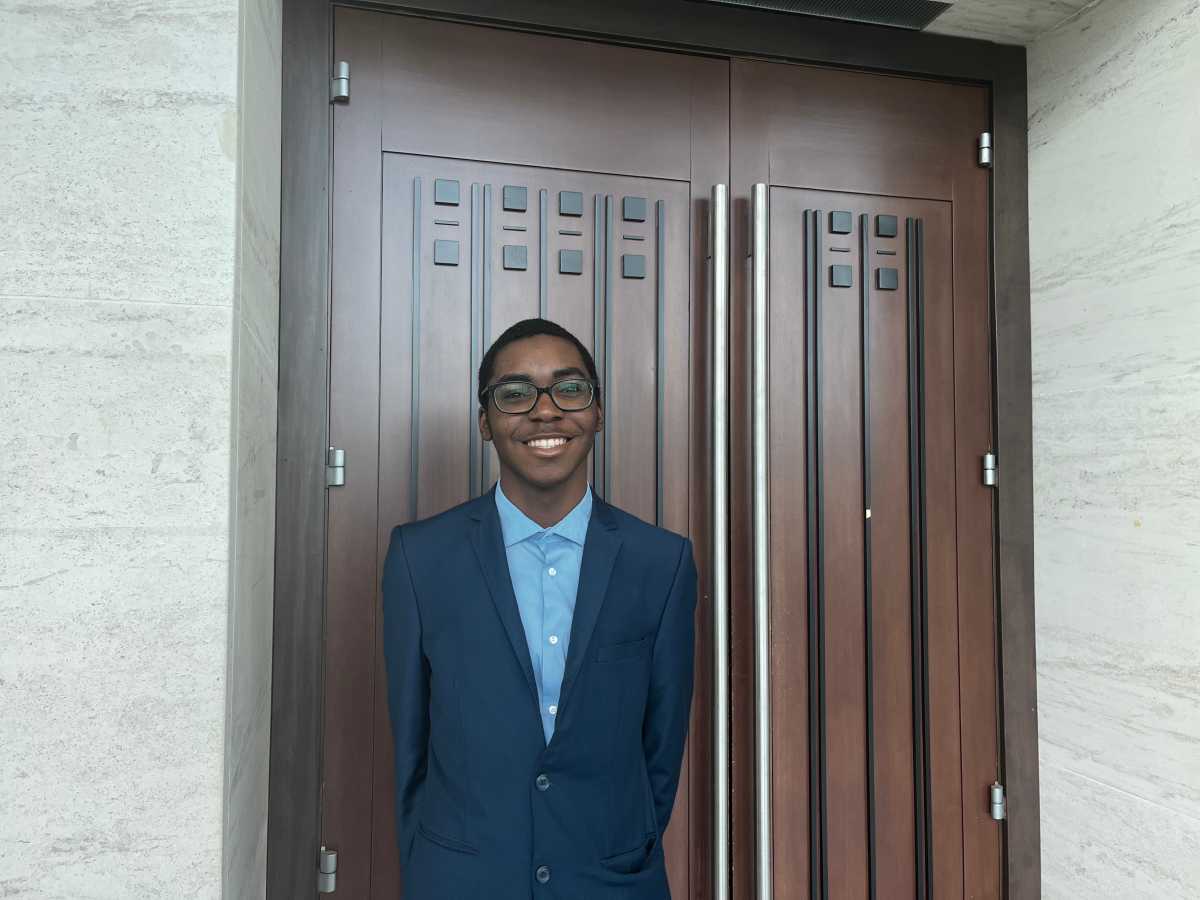
Ajanie Kang, 15, attends John Jay School for Law and presented as a defense attorney during his debate. Kang said that he’s only participated in the Young Debaters program for a few months, but has already proven himself by winning his first debate and moving forward to the Young Debaters Debater of the Year Competition. “My motto when it comes to arguing is that defense is always the best offense to me. When I saw the defense, I said this would be a good role for me,” he said. “ I really want to go to a Tier 20 law school one day and study international law or corporate law.” Kang shared his ambitious endeavors of becoming president in the future, adding that international law will help him broaden his worldview.
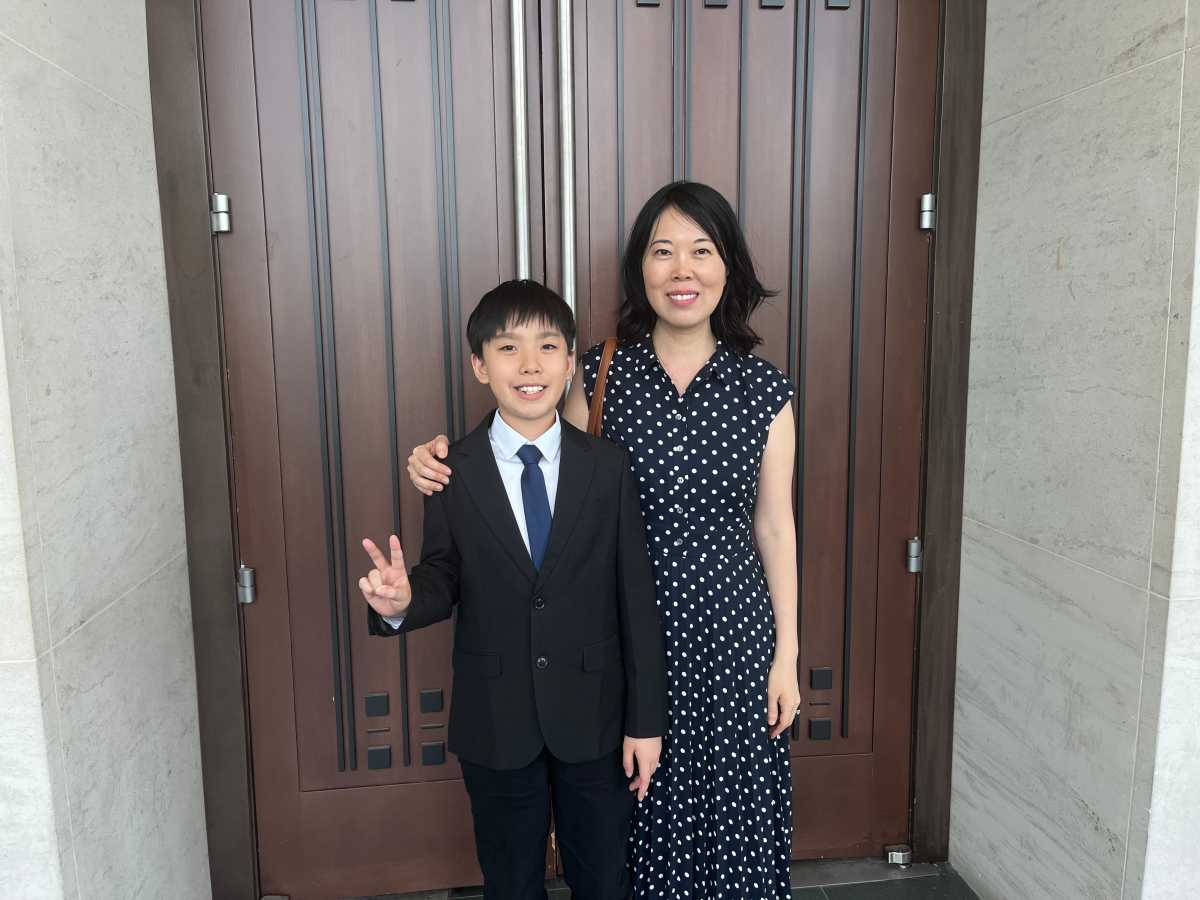
Ten-year-old Alexander Tseung said he felt confident in arguing his case for AI technology in schools. “ I’ve always enjoyed public speaking, and I just think debate is very fun, and I get to tell everybody my points and why I think it is correct,” he said. Tseung, a fifth grader attending P.S. 174 William Sidney Mount School, gave a preview of his opening argument to QNS. “ It promotes security, it makes students’ information more private with a secure database… It makes sure that intruders cannot enter the building, and it also helps correct behavior,” he said.
Tseung’s mother, Jeane Han, said the program has provided a positive behavioral outlet for her son and other young students.
“Through this program and the training as a Young Debater, he’s learning to put his thoughts together and be more logical, and also he’s learning to speak from his heart as well, like logos and ethos and all of those things that are important as a debater,” she said. “ I’m very pleased by this program, and Mr. Celestine puts so much effort and energy into this, and he’s great,” Han said.
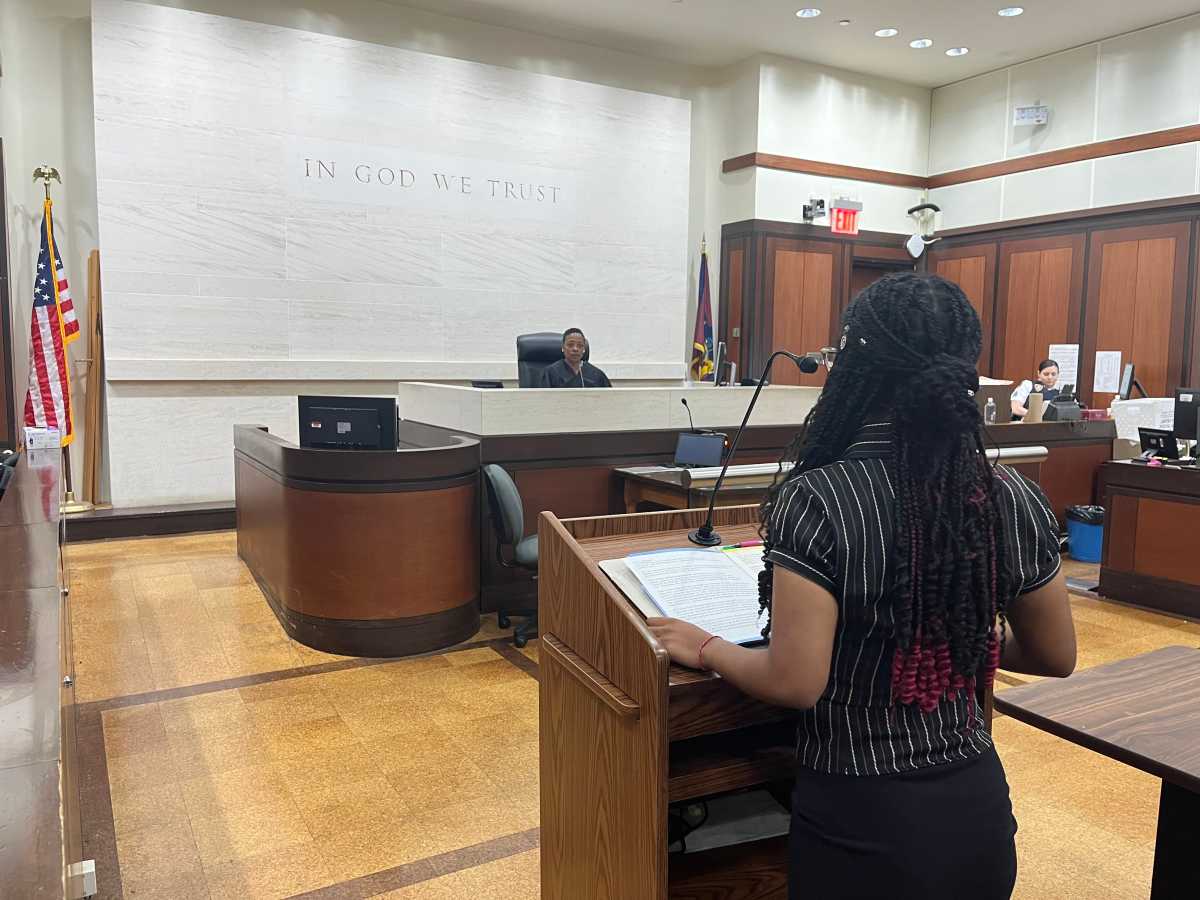
Dr. Christopher Smith, principal of the Southeast Queens-based all-boys high school Eagle Academy, said the Young Debaters program has created a platform for his students to thrive. This is Eagle Academy’s first year with the Young Debaters program, and two students qualified for the Debater of the Year event. “For one, I think that giving them the exposure before something happens is positive because they can see what really goes on in a courtroom, protocol expectations, and how you interact with a judge, so if they ever have to go in front of a judge… they know courtroom etiquette,” he said. “The other thing that I’ve seen is they’re also learning different laws. They’re learning about the First Amendment, the Fourth Amendment, and Fifth Amendment…so not only are they learning this in school, they are also engaging in this learning process outside of the classroom,” he said.
Smith praised the Young Debaters program as a powerful platform for young men to get exposed to the judicial system. “ Just to be able to interact with real judges and clerks is phenomenal. I think almost every scholar from Southeast Queens should be a part of this and I know that this program is going to reach far… I’m all on board.”

